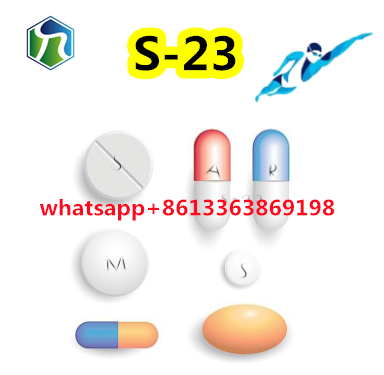
- +86-13363869198
- weimiaohb@126.com

Dec . 05, 2024 10:08 Back to list
Understanding the Uses and Benefits of Testosterone Propionate in Hormonal Therapy
Testosterone Propionate An Overview
Testosterone propionate, a synthetic derivative of the naturally occurring male androgen testosterone, is recognized by its chemical structure and is commonly referred to by the Chemical Abstracts Service (CAS) number 57-85-2. It plays a significant role in hormone replacement therapy, bodybuilding, and is a crucial component in the treatment of various medical conditions related to testosterone deficiency.
Clinical Applications
Testosterone propionate is primarily used in hormone replacement therapy (HRT) for men with low testosterone levels, a condition often referred to as hypogonadism. Symptoms of low testosterone can include diminished libido, fatigue, loss of muscle mass, and mood changes. By administering testosterone propionate, physicians aim to restore and maintain normal physiological testosterone levels, thereby alleviating these symptoms and improving the overall quality of life for affected individuals.
In addition to its use in HRT, testosterone propionate is also utilized in certain medical conditions, such as delayed puberty in boys and specific types of breast cancer in women. The quick-acting nature of this ester makes it particularly suitable for patients who require immediate hormonal intervention.
Mechanism of Action
Testosterone functions by binding to androgen receptors in various tissues, including muscle, bone, and the brain. This binding activates specific gene expression that facilitates the development of male characteristics and regulates a myriad of processes, including muscle growth, fat distribution, and reproductive functions. Testosterone propionate, being a fast-acting ester, releases testosterone into the bloodstream quickly after injection, resulting in a swift onset of effects.
cas 57-85-2 testosterone propionate

Administration and Dosage
Typically administered through intramuscular injection, testosterone propionate has a short half-life, necessitating more frequent dosing compared to other testosterone esters. Patients may receive injections every other day or multiple times a week, depending on individual hormonal needs and treatment protocols. It is crucial for patients to follow their healthcare provider’s instructions to maintain stable testosterone levels and avoid fluctuations that could lead to side effects.
Benefits and Risks
One of the primary advantages of testosterone propionate is its rapid action, which allows for quick adjustments in hormone levels. This characteristic is particularly beneficial in clinical settings requiring immediate testosterone supplementation. Moreover, bodybuilders and athletes often favor this compound for its potential to promote lean muscle gains and enhance athletic performance.
However, like any medication, testosterone propionate carries risks. Potential side effects can include acne, hair loss, mood swings, and an increased risk of cardiovascular issues. It may also impact cholesterol levels and liver function. Additionally, misuse of testosterone propionate in sports can lead to serious health complications and is banned by many athletic organizations.
Conclusion
Testosterone propionate, identifiable by its CAS number 57-85-2, is a valuable tool in both medical treatment and performance enhancement scenarios. While it offers significant benefits in hormone replacement therapy and muscle growth, users must be aware of the associated risks and side effects. It is essential to approach the use of testosterone propionate under the guidance of a qualified healthcare professional to ensure safe and effective outcomes. As research continues, understanding the long-term effects and potential therapeutic benefits of testosterone propionate will be crucial in optimizing its use in both clinical and athletic contexts.
-
GS-441524 White Liquid Production for Factories | AI-Optimized
NewsAug.02,2025
-
AI-Optimized CAS: 79099-07-3 Factories for High Yield
NewsAug.01,2025
-
Premium CAS 1451-83-8 Factory with GPT-4 Turbo | AI-Optimized
NewsJul.31,2025
-
Pharmaceutical Intermediates - AI-Optimized Synthesis & Purity
NewsJul.31,2025
-
Top CAS: 79099-07-3 Factories & Wholesale Supplier from China
NewsJul.30,2025
-
High-Quality GS-441524 for White Liquid Type Factories & Suppliers
NewsJul.29,2025